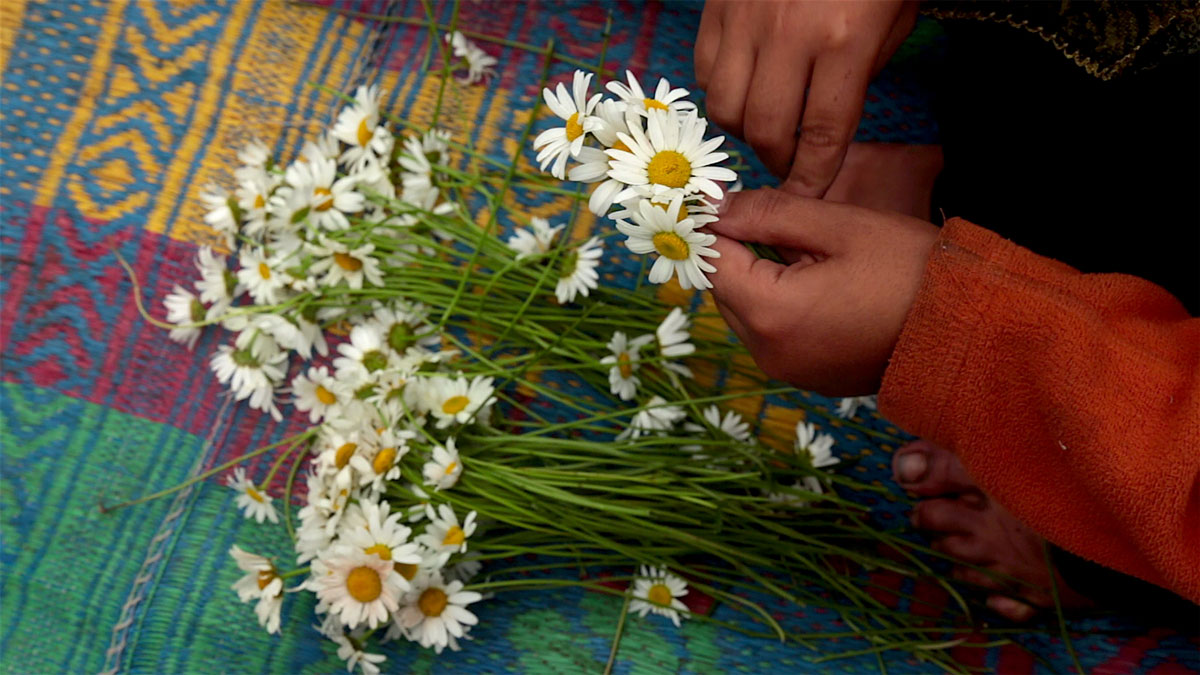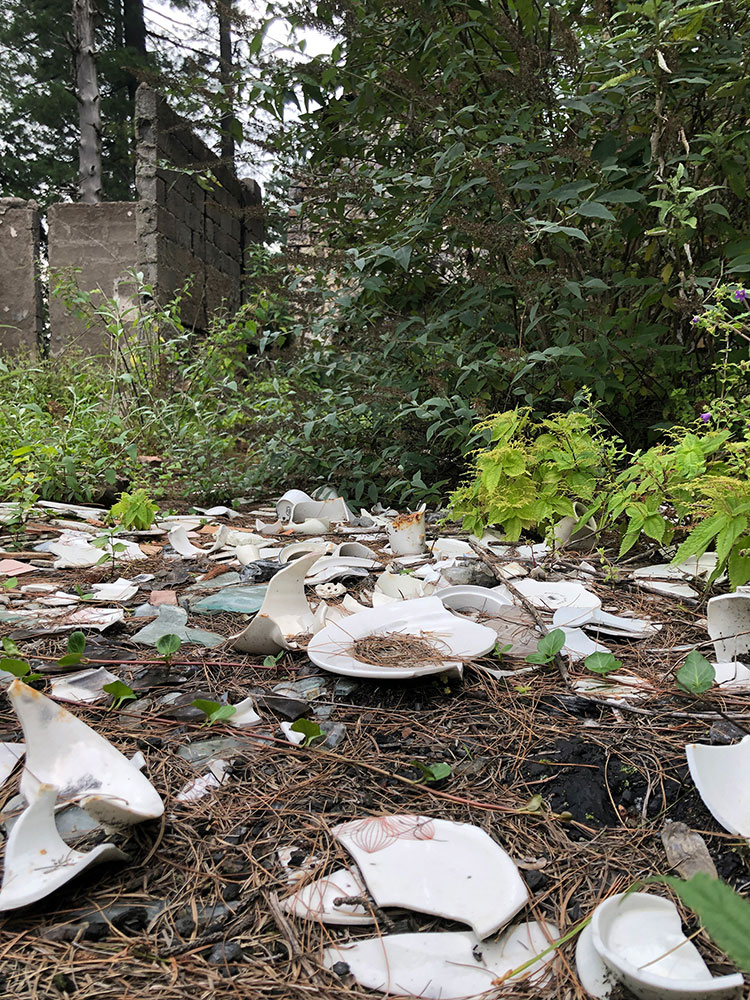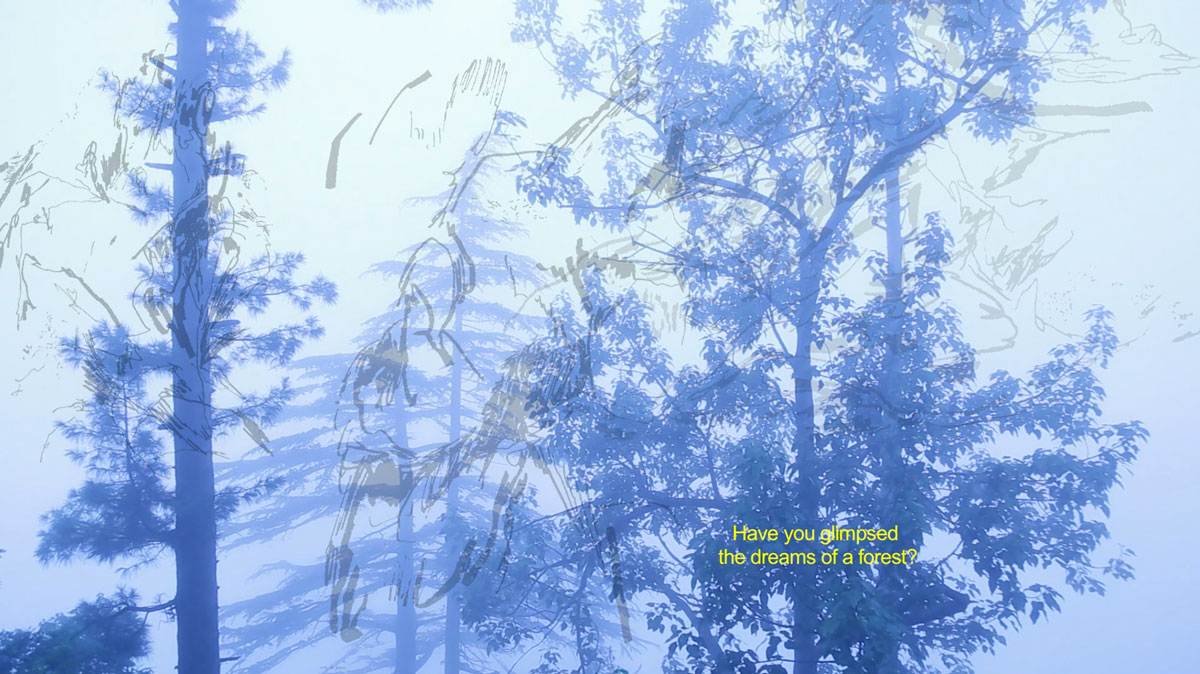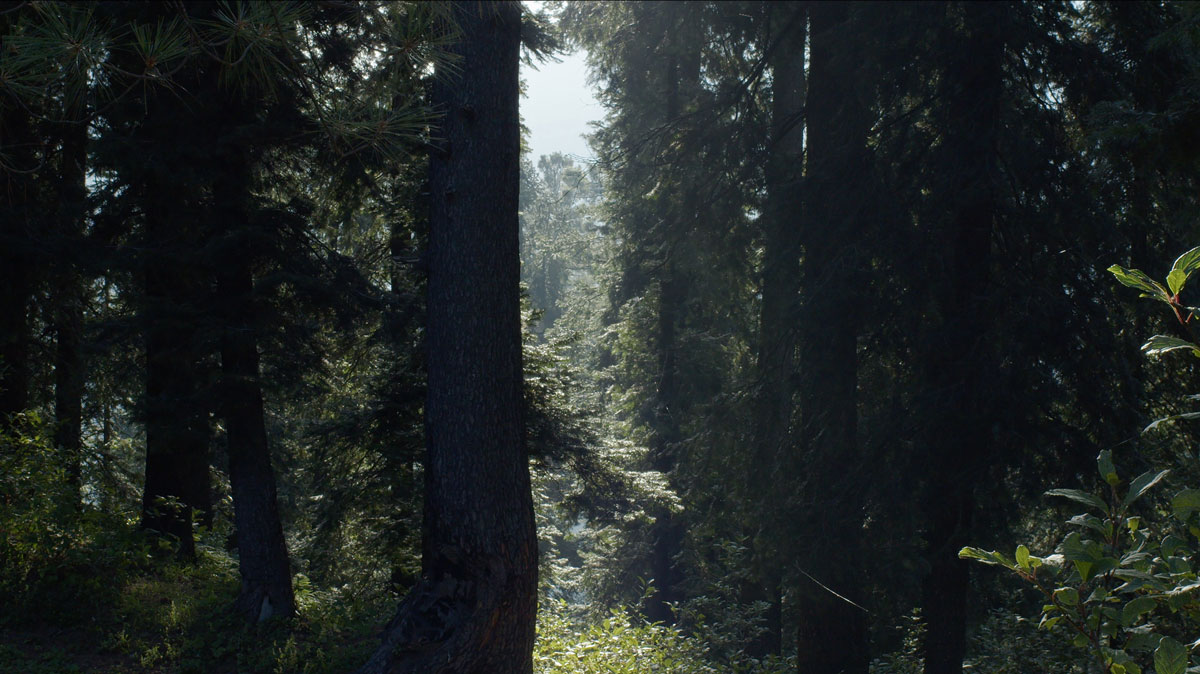PHOTO: Hira Nabi-How to Love a Tree, Wild Encounters
 Hira Nabi is a filmmaker and visual artist who examines the multiple elements of contemporary reality with political insight and poetic intensity. She explores in detail the local consequences of overarching issues such as globalisation and environmental degradation, boldly contrasting harsh fact, inventive narrative and lyrical imagery. Combining critical research and a personal aesthetic vision, she demonstrates the next generation’s ability to resist mass populism and reclaim individuality.
Hira Nabi is a filmmaker and visual artist who examines the multiple elements of contemporary reality with political insight and poetic intensity. She explores in detail the local consequences of overarching issues such as globalisation and environmental degradation, boldly contrasting harsh fact, inventive narrative and lyrical imagery. Combining critical research and a personal aesthetic vision, she demonstrates the next generation’s ability to resist mass populism and reclaim individuality.
By Dimitris Lempesis
Photo: Foam Archive

Hira Nabi is an emerging Pakistani artist and filmmaker. She confronts and challenges anthropocentric assumptions centred on humans, which are deeply rooted in (Western) art and philosophy. Through her focus on the environment and everyday stories, she seeks a greater interconnectedness through her art. “How to Love a Tree: Wild Encounters” is an ongoing investigation into the disappearance of ecosystems and environments rich in flora and fauna in Pakistan. Using varied forms of media including moving images, audio, text, performance, cyanotypes, silkscreen prints, and rubbings, Hira Nabi’s project explores the complex connections between exploitation, history and identity. Nabi’s interest in forests and trees was born from time spent in former colonial stations, mainly in Pakistan, first on holiday as a child, and then later, again as part of her visual arts practice, thinking about these forests and their colonial origins. Forest landscapes were then shaped to fulfill the colonizers’ nostalgic longings, transplanting their hometown English countryside landscapes and transforming local geographies, wiping out traces of what existed before. How to Love a Tree is up to a point an attempt to activate colonial residues and to reflect upon imperial remains and how they still act out upon us and the landscapes that surround us. These colonial stations are now popular resorts, either for urban day-trippers or for longer-term holidays, with mountain forests offering―as they do―slightly cooler temperatures during the summer months. Through her research, Nabi questions this new adaptation of forests for contemporary human-centric needs, thinking about the excess of tourism, how it does what it does; how it hastens decay; and how, whilst bringing in funds, it takes other, subtler nuances away. This iteration of her research, with its attentive and time-giving focus on trees, visualizes a form of violence that is deeply slow, an incremental collapse evolving over decades, almost impossible to grasp. Her work gives us space to consider landscapes and their own agencies: which stories have these trees witnessed? And, as for the water sources that feed them, what have they heard or seen? Insisting that when we find it so taxing to truly listen even to our peers, how can we learn to listen to the wind, to the trees, and their urgent messaging about the toxicity they breathe? How can we include new, more than human stakeholders in the way we consider the world around us? Fully aware of the critical threats to the survival of our forests, Nabi’s installation is first and foremost a reflection on the nature of love, opening up a space for inter-species care, whilst challenging the restrictions on whom and what our societies allow us to care for. A manifestation of the potentiality of love, an offering, a gesture of generosity and kindness: a reciprocity. Immersed in a forest of stoic trees, with the notes of the musical instruments weaving inwards and outwards, mirroring the complex communication networks of trees, we enter a contemplative state of harmony. Our senses awaken to the possibility of our ‘participation’ in a forest, anew, as a form of creative mutualism where the human is decentered and merely one of many elements necessary for a collaborative co-existence and, indeed, our collective survival.
Photo: Hira Nabi, How to Love a Tree: Wild Encounters (Video still), 2023, © Hira Nab, Courtesy the artist and Foam Museum
Info: Foam Museum, Keizersgracht 609, Amsterdam, The Netherlands, Duration: 22/9-26/11/2023, Days & Hours: Mon-Wed & Sat-sun 10:00-18:00, thu-Fri 10:00-21:00, www.foam.org/


